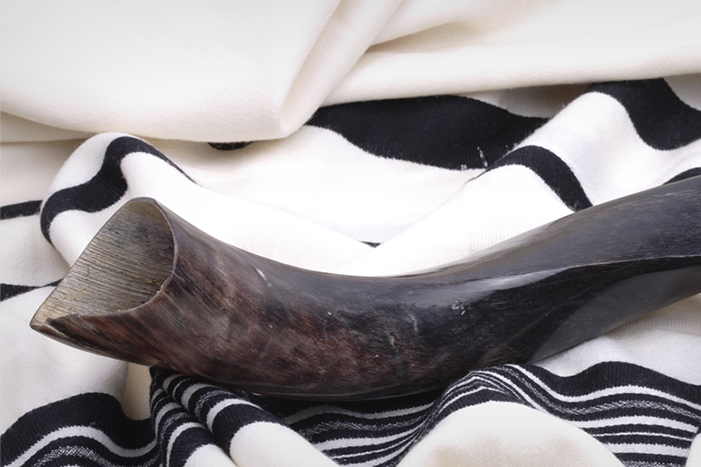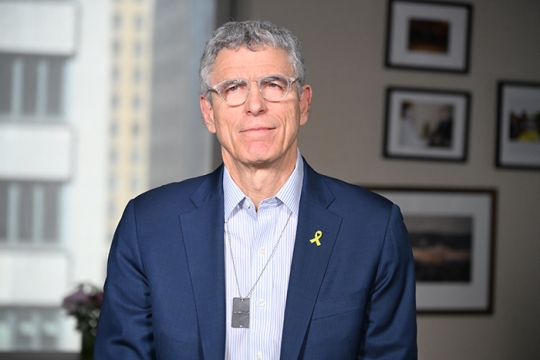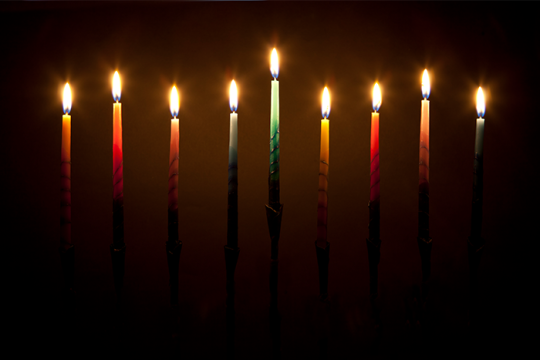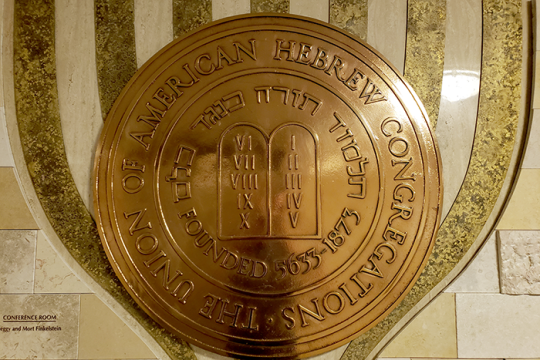
On the cusp of this new Jewish year, it is hard not to be shaken to our core by the onslaught of disasters threatening our lives: the resurgence of COVID 19, wildfires scorching large swaths of the northwest, another catastrophic earthquake in Haiti, hurricanes and floods in the northeast and south, and the tumultuous end to the decades long war in Afghanistan.
Blaming God for such tragedies is theologically problematic; blaming God for failed human policies is blasphemous. This idea is worth considering as we cope with the devastating aftermath of the multiple disasters confronting us.
Most homeowners’ insurance policies classify hurricanes, earthquakes, and wildfires as “acts of God.” As someone who works in one of the Holy One’s branch offices, I was astonished to read my policy’s mischaracterization of how God supposedly acts in our lives.
As we prepare for the High Holidays, when we will take stock of our lives, it seems fitting to reconsider this question of ultimate responsibility. Perhaps we’ve completely mistaken what acts of God are. If so, such misunderstanding can have deadly consequences.
One of the holiest prayers recited on the Days of Awe, Unetaneh Tokef, appears to put our fate in God’s hands.
On Rosh HaShanah it is written, and on Yom Kippur it is sealed.
How many will pass and how many will be created?
Who will live and who will die?
Who in their time, and who not in their time?
Who by fire and who by water?
Who by sword and who by beast?
Who by hunger and who by thirst?
Who by earthquake and who by the plague...
We can debate endlessly the question of God’s role in the processes of nature. What is clear, however, is that we have a responsibility not to intensify the impact of natural catastrophes, for our fate is very much determined by our own actions – or inaction.
Consider the prayer’s litany against the disasters exacerbated by human actions:
Who by plague.... We have all come to know too well the death and fear that the COVID-19 plague continues to cause. But given our Jewish tradition’s veneration of medical science, I am stunned by those who brazenly flout preventative measures such as vaccines and masks while righteously claiming God will keep them safe. Such “piety” makes a mockery of religious faith. For centuries, every Jewish worship service has included the prayer for a “r’fuah sh’leimah” – for a healing of those who are ill. But such prayers have never absolved us from the responsibility to partner with God in creating the conditions that promote healing: quality health care, universal access, and yes, vaccines and masks.
Who by fire…. As massive fires continue to scorch the Northwest, there are still people who deny that climate change is an existential threat to life on this planet and one that is fueled by poor decisions humans are making every day. We are not going to be able to “pray” our way out of the cascading impact of our disastrous inaction in the face of the reality of climate change. It is past time to transition from fossil fuels to renewable energy, even as we help facilitate that transition for everyone, including protecting fossil fuel workers, aiding low-income communities, modernizing the grid, and developing new technologies.
Who by water… The increasing intensity and frequency of hurricanes and tropical storms that bring floods and destruction are hardly the result of persistent “bad luck.” These weather patterns have been exacerbated by our neglectful and foolhardy climate policies. The U.S. is one of the world’s top carbon emitters, and we must accept our fair share of responsibility and resume global leadership on climate action, including protecting communities of Color who are most vulnerable to the impacts of climate change.
Who by earthquake.... I visited Haiti following the 2010 quake that killed over 200,000 Haitians. If the island had followed even minimal building standards, only a few hundred people would have lost their lives then and in this summer’s deadly earthquake. Too often, selfish impulses override humanitarian instincts to the detriment of our fellow human beings.
Who by sword.... After nearly 20 years of fighting in Afghanistan, our troops are finally coming home. But not all of those who stood with us have been brought to safety. The Taliban’s resurgence is putting at risk the well-being and even the lives of women, LGBTQ+ individuals, members of religious minority groups, human rights activists, and all those who worked in partnership with U.S. armed forces, diplomats, and civil society organizations over the past two decades. We must stand with them by reducing visa processing times, welcoming refugees into our communities, and working with the international community to support emergency aid.
Is God the cause of hunger, illness, floods, earthquakes, and war? Some people believe so; I do not. I like to think of nature as morally neutral. God is the source of all that is, but that does not have to mean that God brought the fires, the water, the sword, the earthquakes to make us fear God’s might or as punishment.
In a startling passage in the Talmud in Tractate Avodah Zarah (54b), the rabbis ask, “If a person stole a measure of wheat and sowed it in the ground, wouldn’t it be right that the wheat not grow? After all, it was stolen.” But these ancient rabbis recognized that the world pursues its own course. This is the way of nature -- olam k’minhago nohayg. The ancient sages used this and other examples to underscore that while God created the natural world, the Holy One does not manipulate natural events as a way of expressing moral judgments or to mete out punishment.
I believe that acts of God are all around us – not in destructive natural disasters but in the godly deeds we are willing to perform for God’s hungry, neglected, and drowning children. Why? Because we are taught the edict of b’tzelem Elohim, every person is endowed with inherent Divine worth.
The upcoming High Holidays will once again summon us to do much more than pray and reflect on the deeper meaning of our lives. Each of us is called to be activist partners with the Holy One as we take responsibility for shaping a more just, equitable, compassionate, and peaceful world.
Who shall live and who shall die? To a large degree, it is up to us.
Related Posts

Building Bridges, Not Walls: A Passover Message

5784 Hanukkah Message from Rabbi Rick Jacobs

